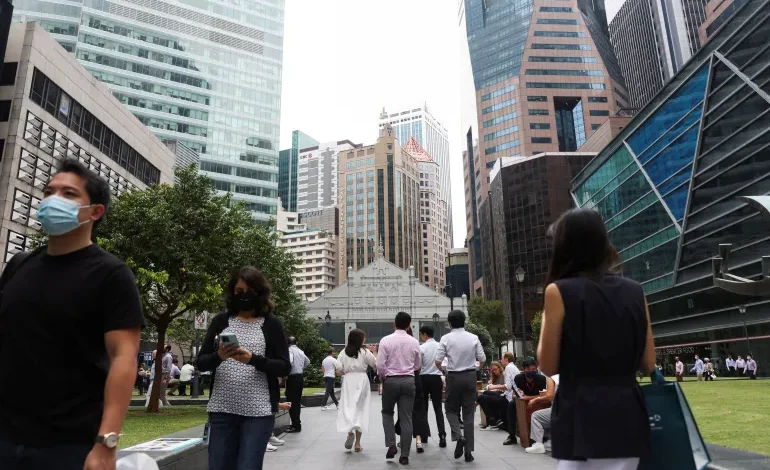Singapore tightens rules for expat workers with an eye on local discontent

One of the world’s most open economies is attempting a delicate balancing act.
On the one hand, the Southeast Asian city-state wants to lure the world’s best and brightest to bolster its workforce, one of Asia’s most diverse.
On the other hand, it has to assure locals competing with foreigners for jobs that the system works for them, too, nipping potential resentment or xenophobia in the bud.
From next year, the government will tweak that calculus in favour of locals by raising the salary threshold for foreigners seeking approval to work in the city-state.
Last month, Singapore’s Ministry of Manpower announced that new applicants for the Employment Pass (EP) system will have to earn at least 5,600 Singapore dollars ($4,140) per month, up from 5,000 Singapore dollars ($3,700).
Applicants working in the financial services sector will have to earn at least 6,200 Singapore dollars ($4,600), compared with 5,500 Singapore dollars ($4,100) at present.
“By regularly updating the qualifying salaries based on the set wage benchmarks, we ensure a level-playing field for locals,” Manpower Minister Tan See Leng told parliament during a budget debate.
Analysts said the changes were not surprising for a government that has regularly tweaked the rules for expat workers, most recently in September 2022, when it raised the salary threshold by 500 Singapore dollars ($370).
Walter Theseira, an associate professor and labour economist at the Singapore University for Social Sciences (SUSS), said the move had been “telegraphed [for] a number of years”.
Theseira said that while the EP system was originally intended to import highly-skilled workers to fill gaps in the workforce, “the criteria seemed to have expanded and EP holders became more prevalent in the middle of the market as well”.“This was perceived by local workers to be unwelcome competition for jobs that many skilled locals could do, so the government responded by re-calibrating the EP again upwards, so that based on salaries, it now targets more clearly the high-end,” he said.
For decades, Singapore, an island with no natural resources that is about the size of New York City, has built its reputation on an openness to foreign talent.
The number of EP holders has grown substantially over the years, fuelled in part by anxiety over the country’s rock-bottom birthrate and greying population.
As of December last year, there were about 205,400 EP holders in the city, up from 161,700 during the same month in 2021.
As far back as 2021, Tan acknowledged that Singaporeans, though recognising the need to attract foreign talent, had concerns that the influx came at the “expense” of local businesses.
A labour market report released by the Manpower Ministry last month showed that employment growth in 2023, comprising 88,400 positions in Singapore – excluding migrant domestic workers – was largely made up of foreigners.
The revision of the EP qualification criteria can be seen as “a strategic move” to appease age-old tensions over hiring foreign talent amid a crowded job market, said Joshua Yim, the CEO of Achieve Group, a talent acquisition consultancy.
The changes also come as the Southeast Asian country is gearing up for one of the most politically significant transitions in its history.
Singapore’s ruling People’s Action Party is set to fight the next general election, due by 2025, under new leadership as incumbent Prime Minister Lee Hsien Loong prepares to step down after some two decades in office.
The issue of foreign workers became salient in the 2011 general election, when public discontent simmered over rising competition for jobs and increasing pressure on public infrastructure.










